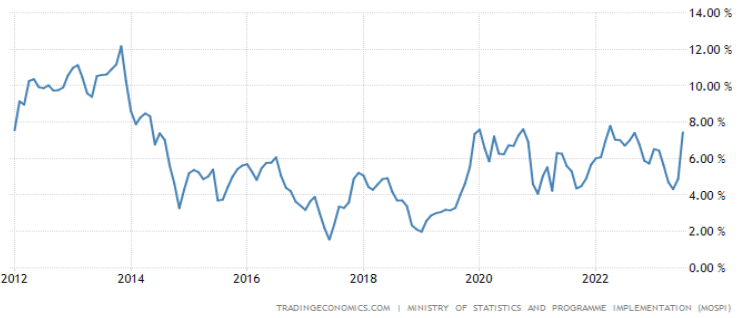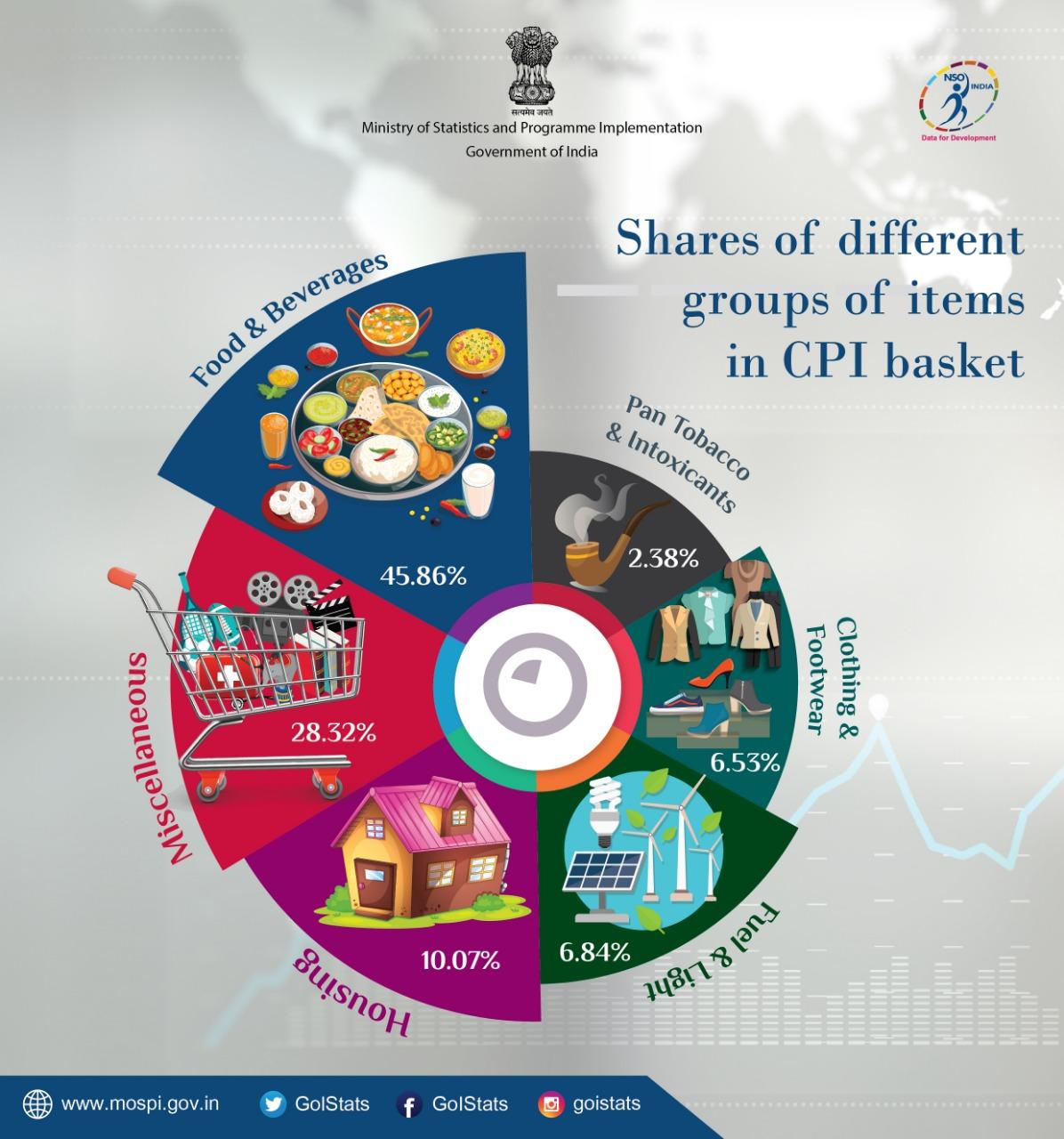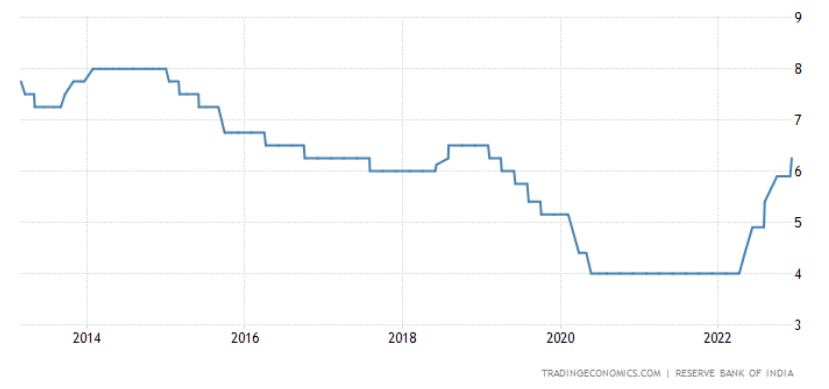Today we will talk about interest rates and inflation, the two hot topics of conversation in the investment world. I will try to simplife these two topics in a simple way and link it with your financial life.
The Vast Majority of views that we read in newspapers and blogs offer some form of asset allocation advice based on these 2 parameters. A Simple Retail Investor Like You And Me Will Definitely Get Confused.
“To complicate is simple, to simplife is complicated. Everybody is able to complicate. Only a few can simplife. ” ~ Bruno Munari
Before we discus interest rates and inflation, a story come to mind.
My wife and I really like to go for long drives. It just relaxes bot of us. In fact, it’s the only common interest between the bot of us.
For these long drives, we do some basic checks with the car and environment – wheether it is raining or not, food, water and comfortable clothing. Since music is now streamed via the internet, we don’t need to worry about cds or cassettes, etc. Sorted.
Now when we start the car, Google Maps Tells Us that we will reach a particular destination in the next 7 hours with an average speed of 80 kmph based on the traffic. So we simply add a couple of hours of rest, washroom breaks and some lunch or dinner along the way. Effectively our journey banks 8.5 to 9 hours.
Thos of us who is constant drive on highways know the unpredentability of accidents. It’s like you are strolling and suddenly there’s a whole lot of traffic that you have to sit through. The crazy part is that there’s just no washroom or food mall available. So you are stuck in traffic listening to music and praying to God that the traffic clears very quickly.
Some Uncles who are strolling Around in such decisions often become the messengers of bad news. It’s their duty to update every car wheether there’s an accident, a fire, Arrival of the Ambulance, or Police and then Leave us with the Hope that traffic gets cleared Quickly.
These unpredictable events lead us to a delay in reaching our destination and if we are not careful, these events also cause a bit of mental instability that Leads to Irritation.
But when the traffic clears, we drive as if our school’s last bell has rang and it’s time to go home. That feeling of relief. Some of us even want to cover the time wasted by driving at ridiculous speeds. It’s just different strokes for different folks. But if you just drive, you will bring your destination. It’s not Rockt Science.
Rockt science is what you do with your peace during these unpredent events. That defines the happy of your journey, not the destination.
Similarly, when you have planned your financial journey of life, there’s a destination set in your mind. Our Financial Independence is when we are no longer worked about looking after the expenses of our home and fulling the expectations of our love.
There will Always be some unpredictable events that will cause you to return your entrance investment strategy. My humble request here is to understand the gravity of the situation before jumping into a complete restructuring of our financial plans. Because sometimes, the situation is made to sound a lot more horrible than it is actually is.
Please keep an open mind and allow me to simplife these concepts to the best of my ability.
Inflation
This term has become the most used and highly abused in the world of investment today.
Some people talk about it as an end-of-the-world apocalypse in the making. It’s then Linked to Consumer Spending and How Things that are getting expense, won’t, so let’s story from the fast-moving consumer Goods (FMCG) Sector, and so on and so on and so on. It’s hilarious and disturbing at the same time.
So let’s understand what inflation is really is and what it means to common people like you and me.
Simply, inflation is undersrstood as a simple rain in the price of a particular communication or service. Suppose, the price of milk goes up from Rs. 75 per litre to Rs. 80 per litre, the extra Rs. 5 is attributable to inflation. If you add human intervention to it, such as putting the milk in a bottle and charging extra won’t be considered as inflation.
To track inflation, the reserve bank of India (RBI) uses the metric of the Consumer Price Index (CPI)The idea is to capture the risk in price experience by roaring 140 Crore Indians. It’s a tough job, to be honest. That’s preciseely the reason why such macroeconomic numbers should always be seen with a pins of salt.
In the chart below, we can capture the last 10 year’s journey of India’s cpi inflation. RBI has set a mandate to keep the cpi in the range of 4% to 6%.

Currently, CPI is Inching towards 8% which is out of RBI’s comfort zone of 4% to 6%. There are multiple explanations for this and in my opinion, every explanation is valid. Because in macroeconomics, data is always supported by a story that we create.
However, if you come to think about it, our yearly expenses don’t by a mere 4%. They tend to be well Above 18-20%. We call this luxury inflation.
RBI Constructs Its CPI with the following constituents.

Don’t be surprised! This is how the RBI Budgets Itself. Our household budgets are different.
The Major Pie of the CPI Basket Falls Into Food and Beverages. It constituted a good 45.86%. So any unusual price hikes in onions, tomatoes, etc. Have a direct impact on the inflation rate. Housing is 10.07% which is larger stable in price.
We don’t see massive fluctuations in a matter of a few months. Fuel & Light does have a lot of impact on our wallets but for RBI’s cpi it’s barely 6.84%. So a whopping Rise in petrol prices might not directly affected the inflation rate so much.
So it’s safe to say that RBI’s expectation of the inflation rate and the inflation rate that we experience are two separate things. Yet, we give a lot of importance to inflation and base our investment decisions on it too.
We should really reconsider it.
Next in Line is Interest Rates!
Interest Rates
When an Investment Professional Speaks about Interest Rates, he generally referrs to the repo rate published by the rbi in its monetary policy meeting.
In Layman’s Terms, The Repo Rate Influences Our Fixed Deposit Interest Rate that we receive from the banks and the loan interest rate that we take for a house, business, car or bike.
Inflation and Interest Rates are interdependent. When the inflation rate goes high, RBI generally prefers to hike the interest rate. When the inflation rate is low, RBI Prefeers to Brings the Interest Rate Down.
Why does this happy?
Think about rbi as a head of the family, someone like a grandfather who looks after the entrance family’s budget. He is constant strategizing about which child of his should go out on his own and which child will make will stay togeether. Plus, business decisions even when they are independently run by his child, he is there to keep guiding constantly.
Suppose our monthly Budget is Rs. 3 Lakhs for a family of 10 people, and suddenly the entry family wishes to go for a small vacation.
How will he do it?
There are 2 options, to eite tighten the household budget for a few months so that he doesn’t need to withdraw from investments or ongoing business. Or he will borrow from the bank to fund the small vacation and recover it laater from the investments or business.
In the first case, the entry family will have to go through a tough phase trust their expenses In the second case, there will be too much pressure on the grandfather and his child to recover the money.
Similar is the case with rbi. When inflation goes out of its comfort zone, like a grandfather, it has the option to limit the supply of money in the economy so that people are spend less. Or it has the option to print more money that will have to be repaid at a later date to avoid currency Depreciation.
In a nutshell, whenever we see interest rates going high, we have to assume that inflation is higher too and vice versa.
Let’s look at a brief history of RBI’s REPO Rates (Interest Rates).

Right from 2014, Interest Rates have been slowly coming down as inflation. However, in the last few months, we have seen them going back up. Home Loans have become a bit expensive and so have our day-to-day expresses. But they are not so significant as to affect our budgets. If the price of tomatoes goes up, we will consume a bit less. It’s not a life-sand-death situation for us.
Even if the interest on a home loan or car loan gets expenseve by a couple of percentage points, most of us Simply Yawn. It’s not a material impact.
We are not macroeconomic forecasters who will tell you what is going to happy in the future. The International of this article is different.
Yet, we take these 2 numbers serially when considering our investments. Isn Bollywood it so?
When interest rates are high, banks offer a very high fixed deposit rate. So we tend to move our money from right to fixed deposits.
Contrary, when the interest rates are low, we move our money from fixed deposits to the right market.
We forget the most important Principle here.
The right market is a completely different beast to conquer. Fixed Deposit is a Completely different Financial Instrument. They are not supposed to be interchanged due to some temporary economic factors.
What is an equity market then?
In simple terms, the right market is a place where you get ownership of a business. So Suppose, You want to oven the growth of reliance industry. You will go to the right market and buy some shares of the company. And if you want to sell trust you do’t see any further growth in the same, then you can go and do that.
Companies like zerodha, upstox, etc. Merely offer a platform to enable such a transaction. They are not the equity market themselves. They are merely enablers.
The factors that make you buy or sell a particular company’s stock is a Completely different discussion that we will keep for a later date.
The biggest mistake that we see investors making today If you ask them why? That’s decision equity markets will make better returns than the interest rates on fixed deposits.
Yes, we agre that equity markets will always make better investment returns Than Fixed Deposits. Here’s a question I want to leave you with.
Will these Interest Rates and Inflation Make You a Better Investor?
Think about it.
Hint – We will cover this answer in the next article. Stay Hooked.
The article is written by jinay Savla, Jagoinvestor.

